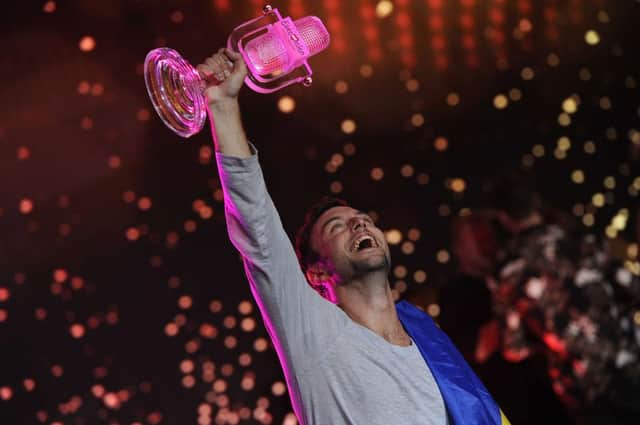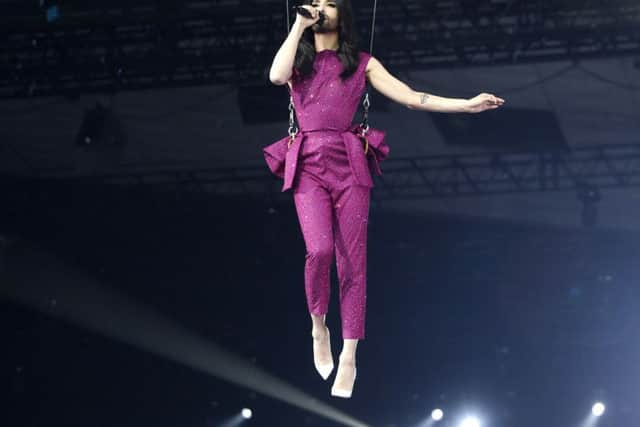Eurovision: Boos for Russia as Sweden crowned winner


The race for the title between Polina Gagarina and Sweden’s Mans Zelmerlow went back and forth for most of the ballot as jurors from 40 countries voted, along a worldwide audience submitting their preference by phone and app.
Zelmerlow finally triumphed with 365 points, with Gagarina receiving 303. Italy came third and the UK got just five points, finishing third from the bottom.
Advertisement
Hide AdAdvertisement
Hide AdCheers in the hall in Vienna greeted Zelmerlow’s win, but the crowd’s reaction to Gagarina struck a jarring note for those who believed in the contest’s slogan, Building Bridges.


Kiev did not send a candidate this year. With many in the West viewing Moscow as the aggressor in Ukraine, Russia’s song, A Million Voices, and its message of peace and understanding raised some eyebrows during the qualifiers leading up to the contest final.
As scattered boos rang out after points were given to Gagarina, one of the hosts reminded the audience that “music should stand over politics tonight”.
Russian neighbours and former Soviet Union states have voted so consistently for each other as a bloc that one nation’s results were actually delivered as “no surprise”.
But there were splits. Baltic countries, recently nervous about Russian actions in Ukraine, ranged in votes from maximum points from Estonia to Russia, but nul points from Lithuania.
Poland gave Russia six points, as did the UK, Netherlands, Sweden and Hungary. Whatever boos there might have been in the Vienna hall, it didn’t stop Germany awarding maximum points to Russia. Another 10 nations, including France, Australia, Denmark, Italy, Portugal and Spain all gave 10 points each to Gagarina.
The strong showing by Russia may have represented a thawing from 2014 when they got just 89 points and many countries denied them any votes at all.
Many Russians were critical of last year’s winner, bearded cross-dressing Austrian diva Conchita Wurst, with some calls to leave the contest and set up a rival one.
Advertisement
Hide AdAdvertisement
Hide AdWurst rejected the boos on Saturday, calling them “incomprehensible”, and noted that Gagarina “cannot be blamed for the rules” in her home country.
Promoting homosexuality is against the law in Russia. Many there view Wurst as a threat to traditional family values, and a win by Gagarina would have brought the event to Moscow, a scenario viewed with alarm by the Orthodox Church.
Patriarch Kirill warned ahead of the event of “all those bearded female singers”, declaring that acts such as Wurst’s promoted values “repulsive to our soul and culture”. Wurst took such comments in her stride on Saturday, saying: “I would have come” had Russia won.
The 60th Eurovision was watched by about 200 million people, the most ever, and the contest was officially inducted into the Guinness Book of Records.